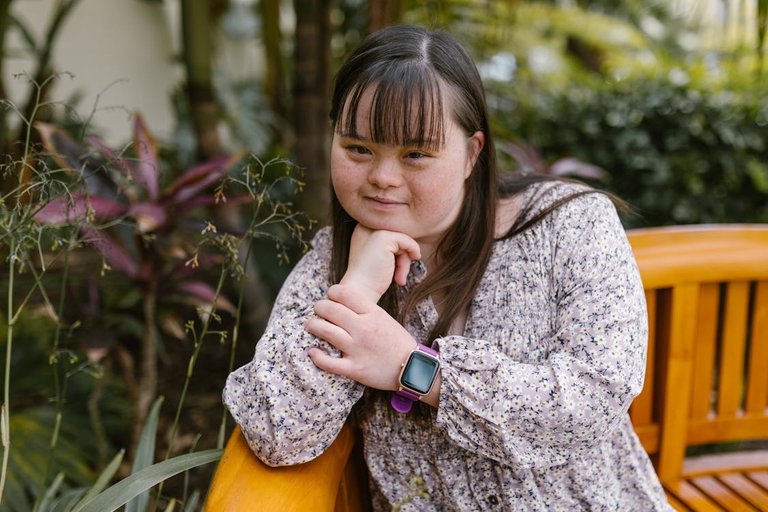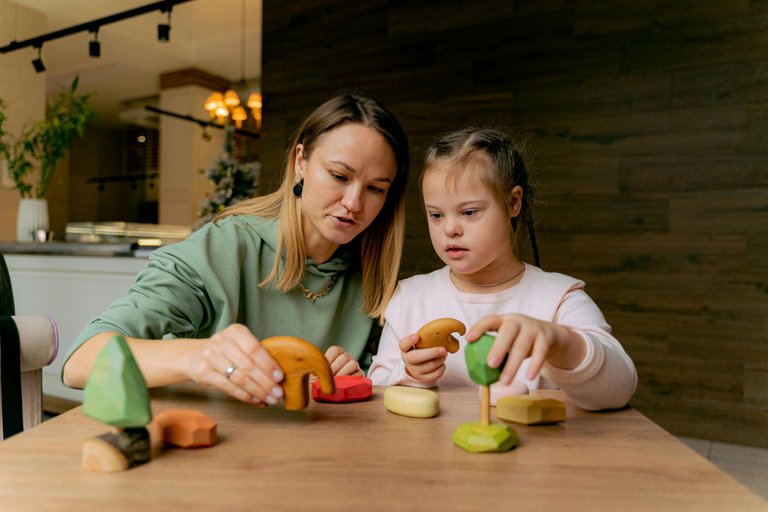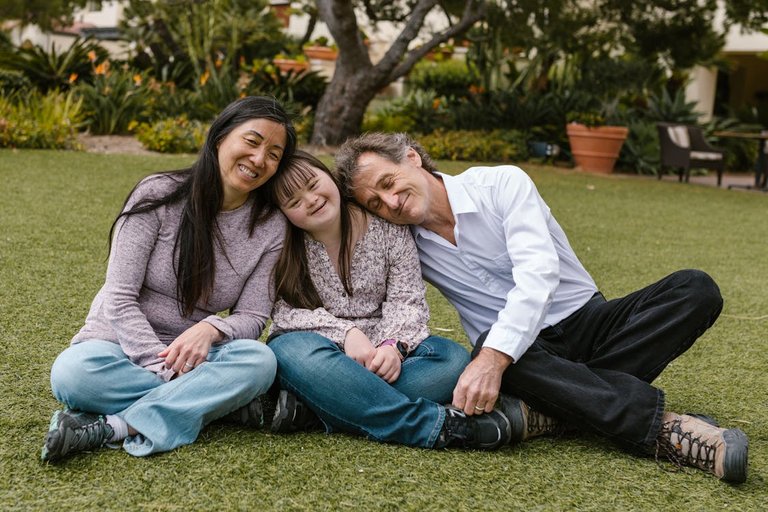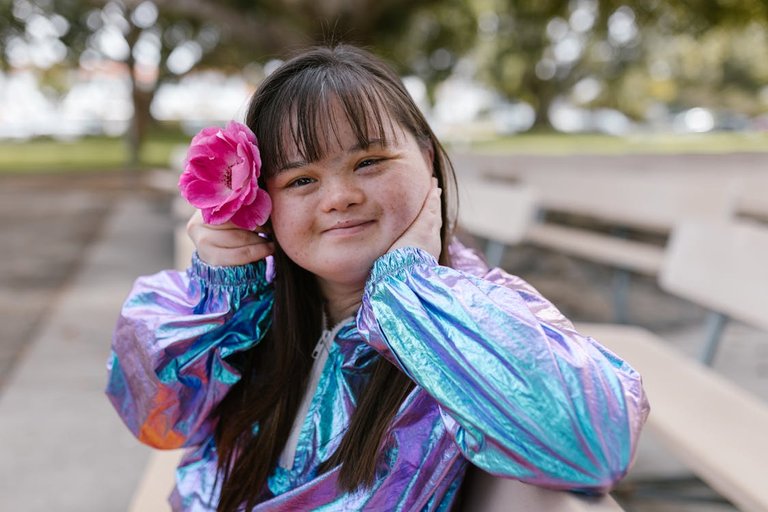
Cada 21 de Marzo se celebra el Día Mundial de las Personas con Síndrome de Down, tenemos un día al año para celebrarlo, y 365 días para poner en práctica nuestra solidaridad y apoyo. Inclusión, visibilidad y respeto deben acompañar la integración de las personas con Síndrome de Down.
El síndrome de Down no es una enfermedad sino una alteración génetica donde presentan un cromosoma adicional del cromosoma 21. Por ello, presentan retrasos en el desarrollo psicomotor, donde profesionales de la salud como fisioterapeutas y terapeutas ocupacionales pueden tratar a través de un plan de intervención temprana de cada niño con síndrome de Down, encargados de estimular su desarrollo psicomotor y cognitivo. Además de presentar otras características tanto motoras como intelectuales. También es cierto que, el cromosoma extra, los hace diferentes en el amor, la atención y sus emociones. Son ellos la mejor versión de la humanidad.
Every March 21st is celebrated the World Day of People with Down Syndrome, we have one day a year to celebrate it, and 365 days to put into practice our solidarity and support. Inclusion, visibility, and respect must accompany the integration of people with Down syndrome.
Down syndrome is not a disease but a genetic alteration where they present an additional chromosome of chromosome 21. Therefore, they present delays in psychomotor development, which health professionals such as physiotherapists and occupational therapists can treat through an early intervention plan for each child with Down syndrome, in charge of stimulating their psychomotor and cognitive development. In addition to presenting other characteristics both motor and intellectual. It is also true that the extra chromosome makes them different in love, attention, and emotions. They are the best version of humanity.

Desde siempre, he pensado que tener un hijo con síndrome de Down se convierte en una bendición de Dios. Sí, porque están llenos de mucho amor para dar que si los educas desde el amor, ellos serán amorosos y respetuosos. Nunca quisiera que el trato fuera al contrario de padres a hijos con síndrome de Down, porque merecen ser incluidos, aceptados y protegidos en la sociedad abarcando todos los ámbitos posibles.
Ser padres de una persona especial a lo mejor no te convierte en un padre especial, pero si que puede ser una gran lección y experiencia de amor que te ayuda a tratar de ser una mejor persona. Por ello, el apoyo incondicional siempre debe prevalecer en la familia y en la educación.
I have always thought that having a child with Down syndrome becomes a blessing from God. Yes, because they are full of so much love to give that if you educate them about love, they will be loving and respectful. I would never want the treatment to be the opposite from parents to children with Down syndrome, because they deserve to be included, accepted, and protected in society covering all possible areas.
Being a parent of a special person may not make you a special parent, but it can be a great lesson and experience of love that helps you try to be a better person. Therefore, unconditional support should always prevail in the family and education.

Hay que romper los estereotipos, esos mitos de que "están enfermos o no pueden aprender" son mitos que no existen y que se deberían de terminar. No contribuyen en el desarrollo humano, mucho menos en humanos que tienen condiciones particulares. Muchos de ellos han sufrido malos tratos. Integrarlos a la sociedad, aceptarlos con amor y a brindarles educación es la meta que se quiere lograr siempre.
Stereotypes must be broken, those myths that "they are sick or cannot learn" are myths that do not exist and should be put to an end. They do not contribute to human development, much less to humans who have particular conditions. Many of them have suffered mistreatment. Integrating them into society, accepting them with love, and providing them with education are the goals we always want to achieve.

Ellos pueden ser las personas más funcionales e inteligente del mundo, ya que son capaces de realizar las actividades que se les indica. Superan cada una de las barreras que se les presentan y tienen un amor profundo que pueden aportar en la sociedad. Tener esta condición no es motivo de rechazo ni de discriminación, debemos crear consciencia y empatía para todas las personas con Síndrome de Down.
They can be the most functional and intelligent people in the world, as they are capable of performing the activities they are instructed to do. They overcome every barrier they face and have a deep love that they can contribute to society. Having this condition is not a reason for rejection or discrimination, we must create awareness and empathy for all people with Down Syndrome.

Celebra este día usando medias disparejas, con el motivo de que siendo diferentes somos iguales y tenemos las mismas oportunidades en la sociedad ya sea familiar, laboral y educativas. Las personas con Síndrome de Down merecen ser respetados e incluidos.
Celebrate this day using uneven socks, with the reason that being different we are equal and we have the same opportunities in society whether family, work, or education. People with Down syndrome deserve to be respected and included.

Estudio Fsioterapia en la Universidad Nacional Experimental Simón Rodríguez en la ciudad de Cumaná, me gusta compartir mi estilo de vida y crear contenido de valor. Comparto las cosas que me apasionan y que me hacen feliz.